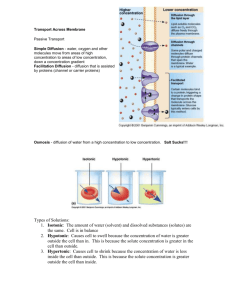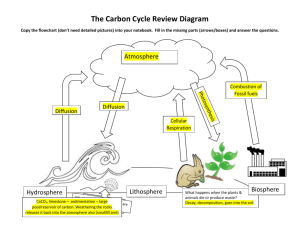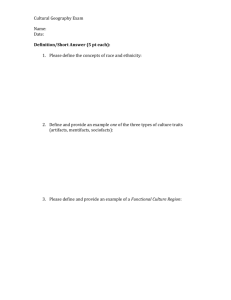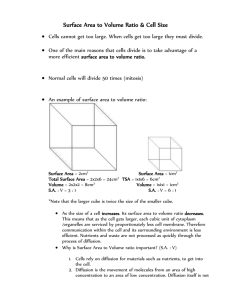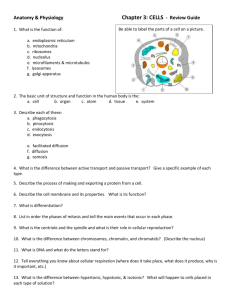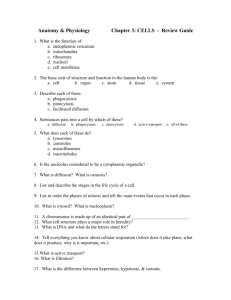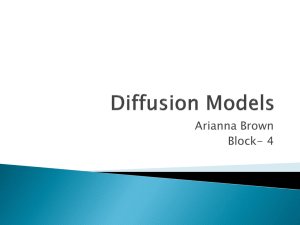Molecular Diffusion in Metal Alloys
advertisement
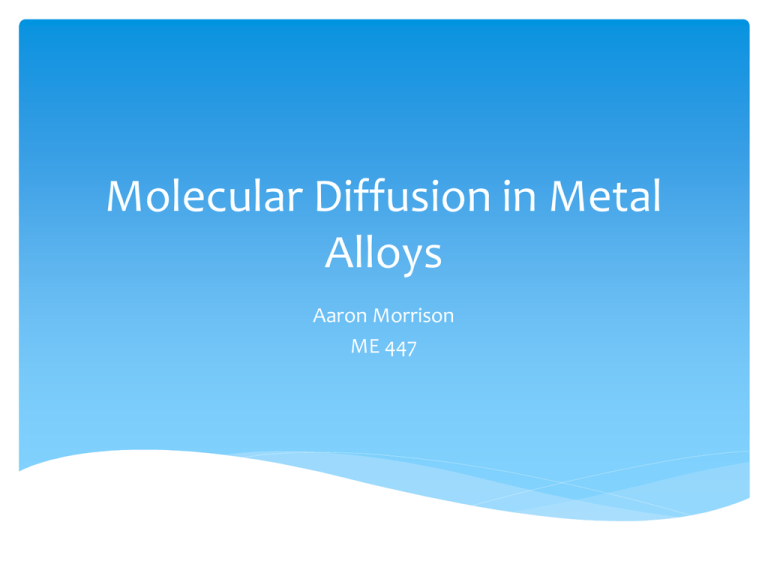
Molecular Diffusion in Metal Alloys Aaron Morrison ME 447 Background Why is this important? Case Hardening Doping Three types of Diffusion within Metals Interstitial Diffusion Self-Diffusion Diffusion in Subsitutional Alloys Background Diffusion occurs because of defects in the solids. Diffusion commonly occurs at the grain boundaries, inner/outer surfaces and dislocations. The diffusion along linear, planar and surface defects is generally faster than diffusion which occurs in the lattice, they are also termed high diffusivity or easy diffusion paths Factors that Influence Diffusion Diffusing Species Temperature Lattice Structure Presence of Defects Grain size Porosity of the alloy. Factors that Influence Diffusion Diffusion occurs faster for Open crystal structures Lower melting temperature materials Smaller diffusing atoms Cations Lower density materials Interstitial Diffusion Must assume interstitial openings for atoms. Steady State Diffusion D0 is the frequency factor and QID is equivalent to the enthalpy of interstitial atom migration Self-Diffusion Requires adjacent vacancies. Diffusion follows: QSD is the activation enthalpy for self-diffusion which includes both vacancy migration and formation of enthalpy terms Self Diffusion 𝑋𝑣𝑒 =exp(-ΔGv/RT) Where, G is the jump frequency of an atom and XV is the vacancy concentration 𝐷𝐴 𝐷𝑣 = 𝑋𝑣 Where 𝐷𝑣 is the diffusivities of vacancies and 𝐷𝐴 is diffusivity of species A Subsitutional Alloys Exchange between two atoms similar in size. Diffusion Follows: 𝐷 is the interdiffusion coefficient. DA and DB are the diffusion coefficients of A and B respectively and XA is the molar fraction of species A Subsitutional Alloys 𝑣 = (𝐷𝐴 −𝐷𝐵 ) 𝑑𝑋𝐴 𝑑𝑣 Where v is the lattice drift velocity 𝐽′𝐴 = −𝐷𝐴 𝑑𝐶𝐴 −𝑣𝐶𝐴 𝑑𝑥 Where 𝐽′𝐴 is the net diffusive flux. Example Model Carburization Process in which carbon is diffused into low carbon steel. Increases hardness of steel, fatigue/tensile strength and wear resistance. Carburization Assume: No volume changes occur in lattice during diffusion. Non-steady state (Interstitial concentration varies with time) Diffusivity is independent of composition Temperature between 1600°F and 180o°F No Reactions Carburization Beginning with Fick’s 2nd Law With the assumption DB is not a function of concentration Carburization Final Solution Carburization 𝑦 𝐷𝐶 =[0.07+(0.06*C)]*exp(-32,0o0/RT) 𝑐𝑚2 /s In the figure, Carbon concentration vs distance is calculated for treatments at 1700°F with 2 and 16hour Treatments with D = f(C) and D ≠ f(c) Carburization Additional types of Carburization: Two Step Carburizing Variation of Surface Carbon Potential and Temp During Treatment Vacuum Carburization References Porter, D.A., and Easterling, K.E., Phase Transformations in Metals and Alloys, 2nd ed., Chapman & Hall, 1992 Johnson, D.D. CHAPTER 6: DIFFUSION IN SOLIDS. 1st ed. Illinois: MSE, 2006. Web. 14 May 2015 Christian, J.W., The theory of transformations in metals and alloys, 2nd ed., Pergamon, 1975 Shewmon, P.G., Diffusion in solids, 2nd ed., TMS, 1989
